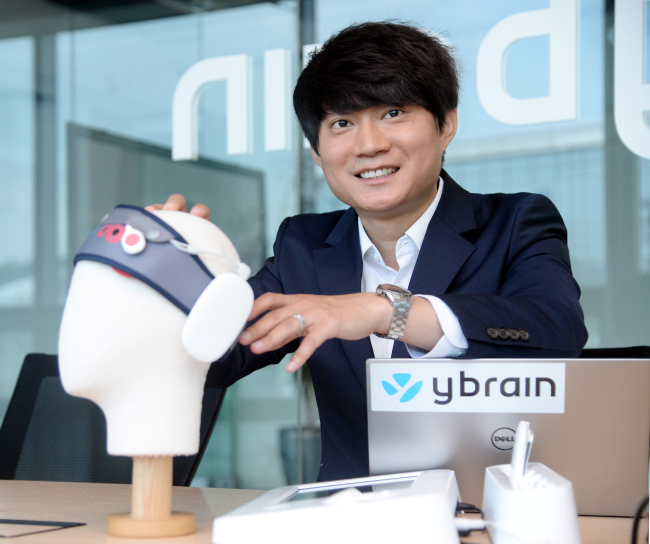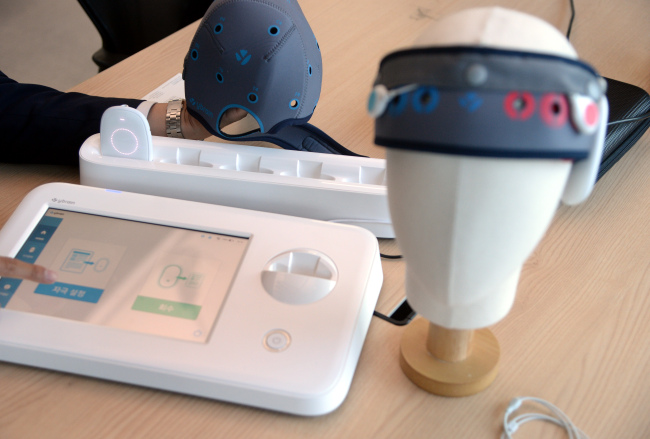- NOTICE
- 2017.06.18
[Health-tech Korea] Ybrain headband takes aim at depression

The Korea Herald is publishing a series of articles highlighting South Korea’s promising startups in the emerging sectors of digital health care and next-generation medical devices. This is the ninth installment. – Ed.
For the past 11 years, South Korea has recorded the highest suicide rate among the Organization for Economic Cooperation and Development countries, with depression and mental illnesses behind most of the self-inflicted deaths.
Despite the growing number of people suffering from chronic mental health problems, many South Koreans are still reluctant to receive in-hospital treatment due to social stigmas. But one tech startup has set out to address the issue with a new and innovative medical device that could possibly treat mental diseases at home.
Local startup Ybrain has created a headband that sends weak electric currents to the brain — a device that the local startup believes could eventually become a revolutionary tool in the treatment of depression as it could be used at home.
(…)
Having attracted some 10.2 billion won ($9 million) in investment over the past four years, Ybrain has now commercialized its first-ever headband wearable that treats depression, named Mindd.
Mindd was launched in Korea in March this year after being approved by the Ministry of Food and Drug Safety as a medical wearable that treats depression.
The device treats clinical depression via transcranial direct current stimulation, or tDCS. It works by delivering a tiny stream of electricity to the frontal lobe of the brain, where decreased activity is associated with depression.

The Seoul-based company is also planning to register its device with the US Food and Drug Administration, aiming to secure approval there by 2019.
In the US, Harvard Medical School has embarked on a 500-person clinical study on depression in which Ybrain’s product is being used. Combined with the firm’s own clinical trial data collected in Korea, the results from Harvard’s study are expected to further strengthen Mindd’s credibility as a medical wearable for depression, according to Lee.
“I think that mental illnesses in general have always lacked good solutions compared to other diseases. Moreover, countless people are suffering from depression every day, yet few seek medical treatment,” said the entrepreneur.
“With our device, we hope to contribute to solving this problem by offering patients the option to treat depression from the comfort of their home,” he said.

